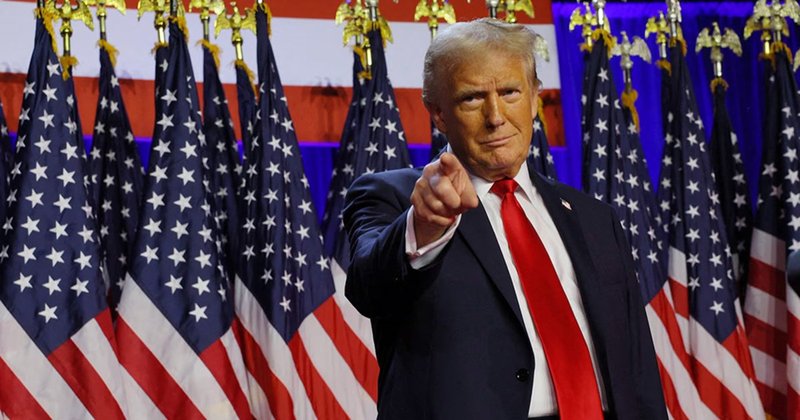
President Donald Trump’s sweeping new tariffs—announced on what he dubbed “Liberation Day”—have triggered a political firestorm and a sharp divide among Americans. According to a recent YouGov poll, more than half of U.S. adults see the tariffs as “the largest peacetime tax hike in U.S. history.” Yet amid the debate over economic fallout and political strategy, one reality risks being forgotten: China remains the central challenge to American security and sovereignty.
On April 2, Trump introduced a new 10% baseline tariff on all imports, along with steep, targeted tariffs—34% on China, 25% on South Korea, and 20% on the European Union. While these policies have faced domestic backlash, their target reveals a broader strategic concern: the rising economic dominance and geopolitical aggression of the Chinese Communist Party (CCP).
Trump's move, while controversial, was driven by a deeper fear shared across party lines—the systematic threat China poses through its trade practices, industrial espionage, cyberattacks, and manipulation of global institutions. Yet critics focus primarily on the impact of tariffs on U.S. consumers, rather than confronting the long-term national costs of inaction.
In the same YouGov survey, only 22% of Americans said tariffs should be increased. However, nearly half agreed with the statement that the U.S. is “subsidizing” other countries like Canada and keeping them economically afloat. This sentiment reflects a growing unease with America’s role in the global economy—an unease that China is eager to exploit.
Beijing’s retaliation to the new tariffs came swiftly, with a 34% hike on U.S. goods and the usual barrage of accusations. Chinese foreign ministry spokesman Lin Jian condemned the U.S., saying it is “sacrificing the legitimate interests of all countries to serve its own selfish interests.” But the irony is thick—China has long benefited from favorable trade terms while aggressively pursuing its “Made in China 2025” goals, stealing intellectual property, and flooding global markets with cheap, state-subsidized goods.
Worse still, China’s threat isn’t just economic. Its expanding military presence in the South China Sea, aggressive actions toward Taiwan, and infiltration of American research institutions and corporations signal a deeper game. China is not simply trading with the U.S.—it is actively working to undermine its influence and replace it as the world’s leading power.
In that light, any measure to push back—tariffs included—should not be dismissed out of hand. While Trump’s approach may be blunt and politically costly, the core concern is legitimate. America is locked in a competition far greater than trade statistics. It is a contest over who will write the rules of the 21st century.
Unfortunately, the national conversation is focused on short-term price increases and election-year maneuvering. Few in Washington are willing to confront the deeper threat that China poses—not just to American jobs, but to democratic values, cybersecurity, and global stability.
Republican Senator Ted Cruz echoed some of this nuance, stating, “Tariffs are a tax on consumers... but I hope they’re used as leverage to lower tariffs globally.” That balance—between domestic burden and strategic necessity—is the real challenge.
It’s easy to criticize tariffs when they pinch the pocketbook. It’s harder to talk about the decades of unchecked Chinese economic aggression that brought us here.
If Americans want to remain a free and prosperous nation, the focus must go beyond Trump’s poll numbers or partisan fights. The real question is this: Are we prepared to confront the true scope of the China challenge, or will we be distracted by the noise—until it’s too late?